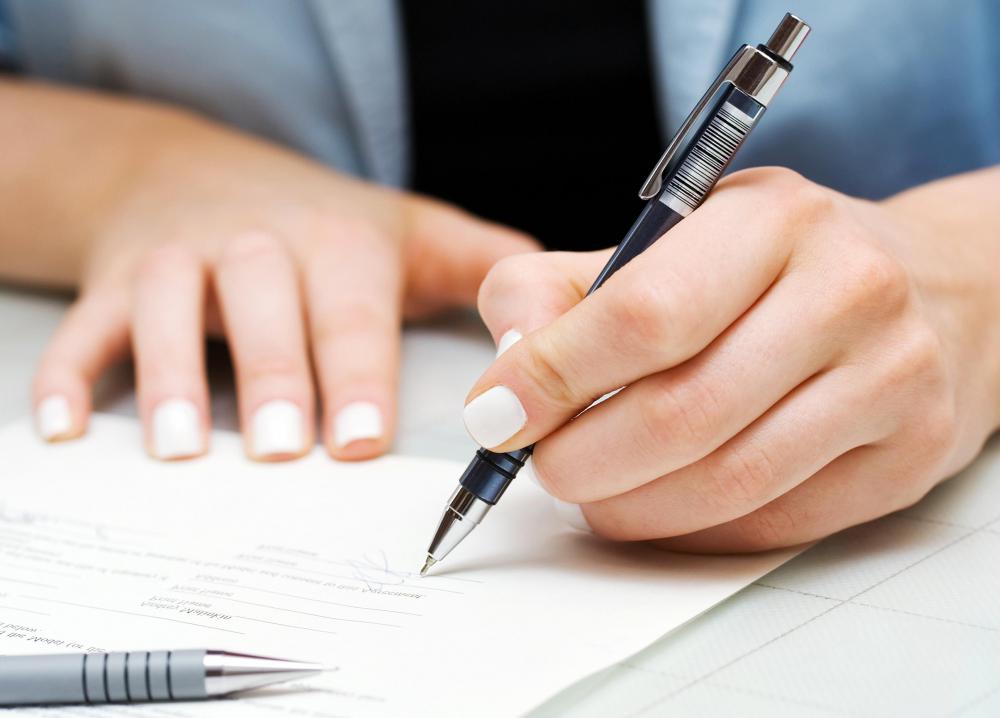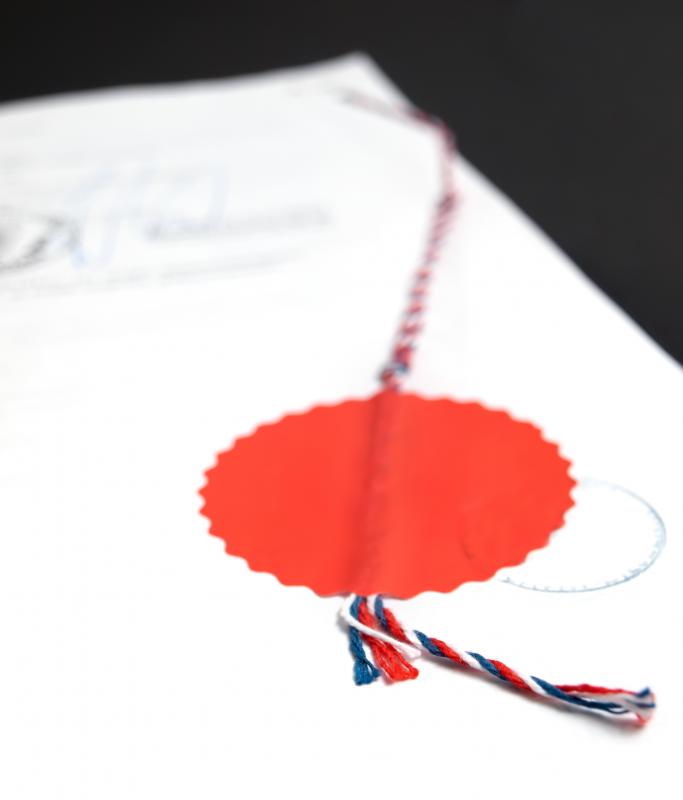At SmartCapitalMind, we're committed to delivering accurate, trustworthy information. Our expert-authored content is rigorously fact-checked and sourced from credible authorities. Discover how we uphold the highest standards in providing you with reliable knowledge.
What is a Notary Public?
A notary public (sometimes called a notary or a public notary) is an individual authorized by state or local government to officially witness signatures on legal documents, collect sworn statements and administer oaths. He or she uses an embossing tool to verify his or her presence at the time the documents were signed. Most states issue a unique identifying number to each notarized person in order to prevent fraudulent use of the embosser.
An attorney or other public figure can be granted notary public status, but no legal training is required to apply for the position. Certain legal documents are required to be 'notarized' in order to be recognized in court, so a notary public spends most of his or her time observing routine signatures. Because identities are critical, someone in this position may also spend some time verifying the names of the parties involved in the signing. Generally, all parties provide some form of official identification (driver's license, birth certificate, passport, etc.) in order for the notary public to feel comfortable about certifying the signatures.

A notary public can charge a nominal fee for his or her services, but this fee cannot be seen as excessive. A large law firm or a government office may have a need for a someone working in this position full-time, but it's more common for licensed notaries to offer a number of other services as well. If the owner of a local grocery store happens to be a certified notary public, for example, he or she can legally post a sign stating that notary services are available.

One misconception about this job is that the official signature and/or embossing stamp automatically makes a document 'true and legal'. The truth is, a notary public cannot give legal advice to anyone unless he or she also happens to be a licensed attorney. What he or she does is witness the signing of the documents and ask each party for a sworn oath of authenticity. The document itself could still be declared fraudulent or unenforceable later in court proceedings. A notary public can only attest to the identities of the signatories and their own affirmations of authenticity at the time of notarization.

The process getting notarized varies from state to state. Some states request applicants take a proctored test on policies and procedures before certification. Others allow anyone over the age of 18 with only one day of residency to apply, as long as local references can be obtained. There are national organizations which oversee this profession, but participation in these groups is voluntary. In general, someone wanting to get notarized should have a high level of integrity and respect for the legal process. Several organizations offer courses on the legal and social aspects of the job. Notaries cannot discriminate on the basis of race, sex, creed or religion, for example. A notary public can reject a client if fraud is suspected or identification cannot be verified.
AS FEATURED ON:
AS FEATURED ON:
















Discussion Comments
what jobs include being a notary public?
Why would a corporation require me to prove the expiration date of the Notary Public that was used in the process of my retiring? This request was made after the fact that the Notary signed and sealed my retirement papers.
Post your comments